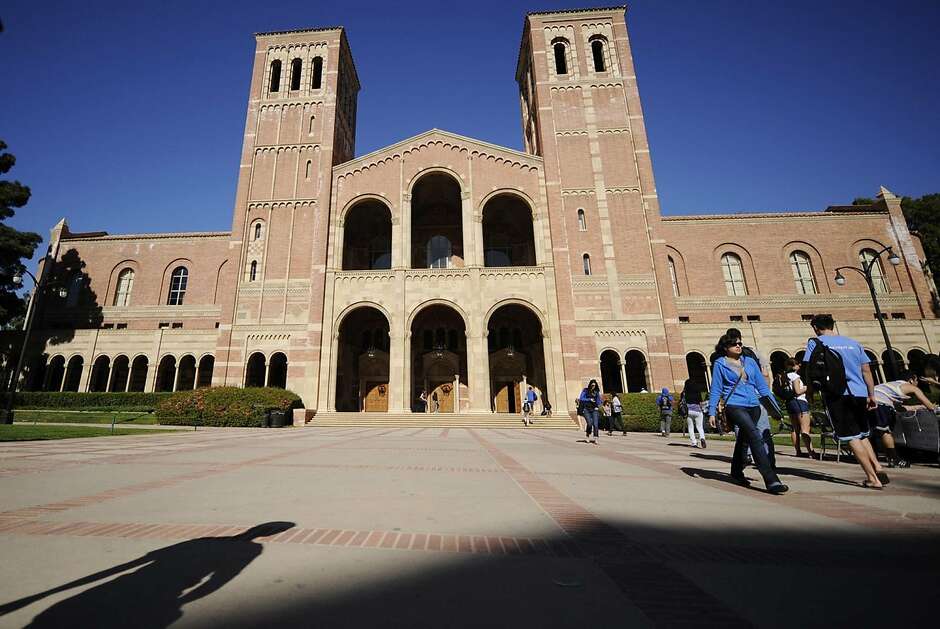By Tom Campbell Sep. 11, 2020 Updated: Sep. 11, 2020 4 a.m.  An economist and law professor from UCLA, above, has sharply challenged a recent UC Berkeley study on the effects of an affirmative action ban. (Los Angeles Times/TNS) Photo: Los Angeles Times, TNS
An economist and law professor from UCLA, above, has sharply challenged a recent UC Berkeley study on the effects of an affirmative action ban. (Los Angeles Times/TNS) Photo: Los Angeles Times, TNS
Californians will decide in November whether to allow racial discrimination in public education through Proposition 16. After the death of George Floyd, many are looking for ways to rectify past racial injustices and address current inequities. Yet racial quotas and preferences are themselves unjust. Discrimination based on race is offensive to us as Californians and Americans. Which is why Prop. 16 proponents have used the word “diversity” rather than “discrimination,” not just in their campaign pitch, but on the November ballot label.
Morally, there is no difference between a racial quota and a racial preference. If there are 100 spaces available for an entering class, say, in the engineering program at Berkeley, to rule that no more than 40 could be Asian Americans would be deeply offensive to all of us. The 41st most qualified Asian American, who would have been admitted if she were not Asian American, would be right in feeling that California had discriminated against her because of her race.
Instead, suppose 15 of the 100 entry positions are reserved for students who were some race other than Asian-American. Since there are only 100 admissions in total, the pool available for Asian Americans would have been reduced to 85. Even if all 85 of these slots went to Asian Americans, the 86th would be in exactly the same position as the 41st in my first example. She would be excluded because of her race.
Giving preference to one student on the basis of her or his race is the same as excluding another student who is not of that race. This is simple arithmetic. To the student denied admissions, it doesn’t matter whether it was a quota or a preference for a different racial group that kept her or him out. The result is the same.
In the Supreme Court’s original “affirmative action” decision in 1978, the “Bakke” case, eight of nine Justices agreed with that analysis. Four of the justices ruled that it was wrong to keep Allan Bakke from being considered for the 16 places at UC Davis Medical School reserved for students of a different race than his. Four other Justices ruled that California could set aside the slots for racial minorities, so long as the purpose was benign. Only one Justice, Lewis Powell, said that the issue turned on whether California had a “quota” or just a “racial preference.”
Californians instinctively recognized that racial preferences and racial quotas were both wrong when they voted for Proposition 209 in 1996. Californians voted to prohibit racial discrimination and preferences in public education, public contracting, and public employment. Now, advocates of Prop. 16 would overturn Prop. 209’s guarantee that California must not discriminate on the basis of race.
Racial preferences have resulted in egregious racial discrimination and astoundingly disturbing results. A new study from the Center for Equal Opportunity (CEO) shows that if California were to return to racial preferences, race would not act as a mere tiebreaker between two equally qualified applicants. It would again become a major factor in discriminating against some applicants, while favoring others, on the basis of race.
The CEO report, “If California Restores Race Discrimination,” shows the heavy use of racial preferences at the University of California before Prop. 209 and at other large state universities similar to those in the UC system. It found that at the University of Virginia, the odds of a Black applicant being admitted over a white applicant in 2016 were 6.75-to-1, greater than the odds favoring Virginia residents (5.59-to-1).
At the University of Michigan, another highly selective public institution, Black applicants were admitted over white applicants at a ratio of more than 70-to-1, Latino applicants at roughly 46-to-1, and whites over Asian Americans at 1.46-to-1. These numbers are from 2005, the year before voters in Michigan banned the consideration of race in public education.
Should Prop. 16 pass, California will once again practice racial discrimination to achieve desired racial outcomes. We don’t live in a perfect society. Much injustice exists.
However, Californians should ask themselves this question: Is it moral for the state government to treat a person differently, to deny that person opportunity, because of her or his race?
In 2020, just as in 1996, the answer is a resounding, “No.”
Tom Campbell is honorary co-chair of the No on Prop.16 Campaign. He is a former U.S. congressman, former California state senator, former Stanford law professor, former dean of the Haas School of Business at Berkeley, and former dean of the Fowler School of Law at Chapman University. He is currently a professor of law and a professor of economics at Chapman. He clerked for Justice White of the U.S. Supreme Court the year Bakke was decided. These opinions are his own.
 An economist and law professor from UCLA, above, has sharply challenged a recent UC Berkeley study on the effects of an affirmative action ban. (Los Angeles Times/TNS) Photo: Los Angeles Times, TNS
An economist and law professor from UCLA, above, has sharply challenged a recent UC Berkeley study on the effects of an affirmative action ban. (Los Angeles Times/TNS) Photo: Los Angeles Times, TNS